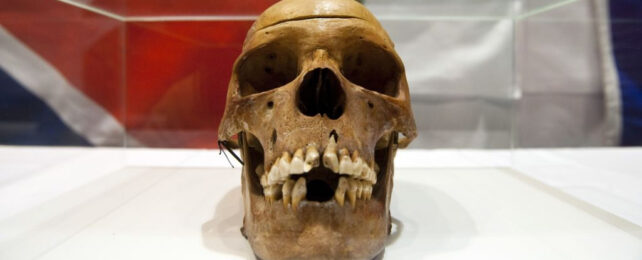Researchers have identified living relatives in Tanzania of people whose skulls were pillaged and taken to Germany during the colonial era, Berlin's museum authority said on Tuesday, a discovery hailed as a "small miracle".
Berlin's Museum of Prehistory and Early History has been carrying out research on around 1,100 skulls from what was known as German East Africa since 2017, with the aim of eventually returning the remains to the relevant countries.
Now, for the first time, DNA analysis has provided a clear link with living descendants in Tanzania, the SPK museum authority said in a statement.
"The relatives and the government of Tanzania will now be informed as soon as possible," the statement said.
The skulls are part of a collection of around 7,700 that were acquired by the SPK from Berlin's Charite hospital in 2011, the museum authority said.
Many of them were part of a collection assembled by doctor and anthropologist Felix von Luschan during German colonial rule.
Others belonged to the skull collection of the hospital's former anatomical institute.
They are thought to have been looted from cemeteries and other burial sites around the world and brought to Germany for "scientific" experiments.
German East Africa included present-day Burundi, Rwanda, mainland Tanzania and part of Mozambique.
Researchers at the Museum of Prehistory and Early History were able to gather enough information on eight of the skulls to merit a search for specific descendants, the SPK said.
For one skull, a complete genetic match was found with a man still alive today.
The title "Akida" on the skull had already indicated that it belonged to a high-ranking advisor to Mangi Meli, a powerful leader of the Chagga people.
The DNA sample provided a direct match with a descendant of Akida, the SPK said.
An almost complete match to descendants of the Chagga people was also confirmed in two more of the eight skulls examined.
Poor condition
"Finding a match like this is a small miracle and will probably remain a rare case even despite the most meticulous provenance research," said Hermann Parzinger, president of the SPK.
Interest in the skulls waned after World War I and they were in very poor condition when the museum acquired them in 2011, the SPK said.
Before beginning the research, which was carried out together with scientists from Rwanda, the museum had the skulls cleaned and conserved.
Over the past 20 years, Germany has been gradually starting to talk more about the crimes it committed during the colonial era.
In German South West Africa, now Namibia, Germany was responsible for mass killings of indigenous Herero and Nama people that many historians refer to as the first genocide of the 20th century.
Germany has returned skulls and other human remains to Namibia that it had sent to Berlin during the period.
In 2021, the country officially acknowledged that it had committed genocide in Namibia and promised a billion euros in financial support to descendants of the victims.
Germany has also started to return cultural artefacts looted during the colonial era.
Last year, it began returning items from its collections of Benin Bronzes, ancient sculptures from the Kingdom of Benin, to Nigeria.
The 16th-18th century metal plaques and sculptures, among the most highly regarded works of African art, are now scattered around European museums after being looted by the British at the end of the 19th century.
